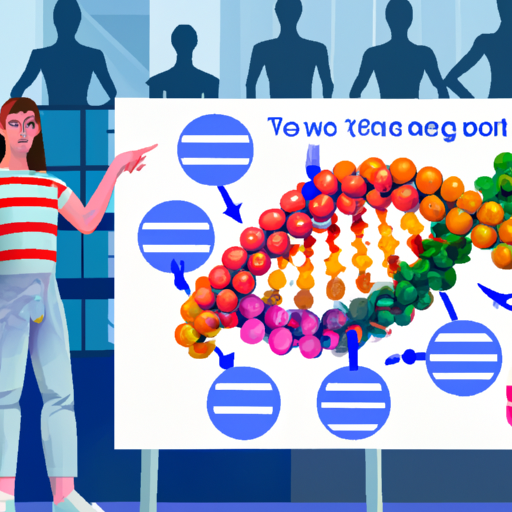
see
He doesn't explicitly say a majority, but 50 is less than 98.
Currently I'm at ~2% - "98%" of patients having "positive MTHFR mutations"? What happened to complex human traits being very polygenic? >50%, let's say, at 5% right now.
(my question is pretty underspecified from a technical perspective, but so is Dr Powers' reddit post)
🏅 Top traders
| # | Trader | Total profit |
|---|---|---|
| 1 | Ṁ22 | |
| 2 | Ṁ7 | |
| 3 | Ṁ6 | |
| 4 | Ṁ3 | |
| 5 | Ṁ3 |
People are also trading
@jacksonpolack I don't think Dr. Powers' claim is true (mostly because it gives me kinda snake oily vibes), but I think that article might be onto something. My joints (particularly my fingers) aren't quite double-jointed, but they do have enough increased range of motion that it sometimes disturbs people because my joints "aren't supposed to do that." That's been the case since before I started HRT, so it can't be estrogen causing it.
The ACX article's a stark example of regression to the mean of effect size
We begin with “the prevalence of EDS diagnosis in our patient population is 132 times the highest reported prevalence in the general population". Wow, 130x!
The very next sentence is "17% of the EDS population in our multidisciplinary clinic self-report as [transgender and gender-diverse], which is dramatically higher than the national average of 1.3%”". So ... 13X! A 10x drop in odds ratio in one sentence!
We end with our independent replication - Ehlers-Danlos: 0.36% cis vs. 0.37% trans Other joint diagnosis: 0.6% cis vs. 1.5% trans Apparent hypermobility: 4.5% cis vs. 8.1% trans / Ehlers-Danlos: 1.2% cis vs. 2.2% trans Other joint diagnosis: 3.4% cis vs. 4.3% trans Apparent hypermobility: 8.7% cis vs. 10.8% trans
At best 2.5x - but with the exact original measurement at exactly 1x.
Doesn't this, entirely falsify the original hypothesis? If you measure a 100x effect, and the real effect is 2x, then didn't you just make a massive error that, purely coincidentally, was in the same direction of a real effect?
There may be something interesting WRT joint hypermobility and intelligence or trans or something, but idk.
@jacksonpolack Oh, I definitely don't think the article is 100% right, and I've got a lot of issues with it. My guess is that hypermobility is associated with being trans, but not nearly at a 130x rate (hell, it might not even be statistically significant, or it might only be significant for trans women, or...) I might post a survey about joint hypermobility to r/asktransgender or a similar subreddit at some point, more as a fun exercise than a serious attempt at scientific research.
fun fact: there's much better data than any survey could have on this topic, and a million more, stuck in legacy hospital and insurance databases - and if anyone wants access, they need professional status, put in a ton of bueraucratic work to 'do a study'.
All for what could be a few free 'SELECT count(*) FROM patients WHERE ehler_danlos = true AND gender_identity=trans' in bigquery https://cloud.google.com/bigquery/public-data/.
obviously privacy's an additional concern, you might not want a literal patients table available (imo the benefits from all that data being public are greater than the harm to any individual from medical data being public but ik 95% of people would disagree), but clearly all n-order associations for small n could be
@jacksonpolack There's so much medical data in the U.S. that badly needs to be digitized and shared to improve research. One of the only things I remember about the doctor I saw as a kid in Virginia was that their shelves were full of folders stuffed full of medical data and presumably other papers as well; that was in the early 2000s, and I imagine that new records are kept digitally, but those folders are probably still on those shelves since no one would want to deal with digitizing that much stuff (even if it could massively improve the quality and quantity of publicly available medical data).
IMO as long as data is fully anonymized it's okay - I wouldn't want anyone to be able to search up my name and immediately have access to my medical history, but I don't mind if my anonymous records are made publicly available and then used to, like, prove a causal link between X mental illness and Y physical condition, or to prove a genetic association between X gene and Y disease/condition, etc. That data exists no matter what and I'd rather it be used for science than just sit in databases in a clinic and an insurance company (or at the moment, probably the state government since I'm on Medicaid).
'fully anonymized' doesn't generally mean 'name, DOB, address removed, it means 'one can't deanonymize people in the dataset'
Unfortuantely, scattered pieces of data can be used to deanonymize people. If you have an individual "record" with an age in years, sex, a weight, a race, a height, the kind of allergies you have, and medical conditions and history ... if you combine that with publicly available information, (of which there is a lot) you'd probably be able to deanonymize a significant fraction of individual 'records' in the dataset.
Solving this is doable, but there are tradeoffs - (iirc) individuals in various us census datasets could be deanonymized, so the census started applying stronger privacy measures (adding randomness), but those measures harmed many analysis cases.
@evergreenemily Update: I decided to look into hEDS today, and it describes a lot of my physical symptoms eerily well. Gonna talk to my doctor about it to make sure I'm not being a hypochondriac about it or anything.